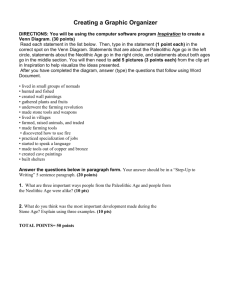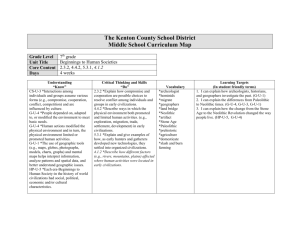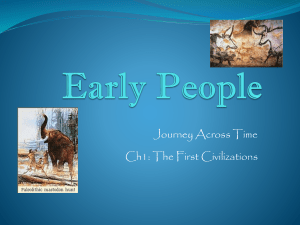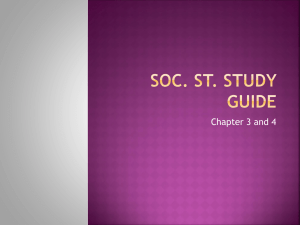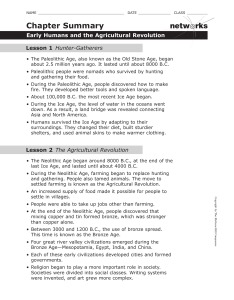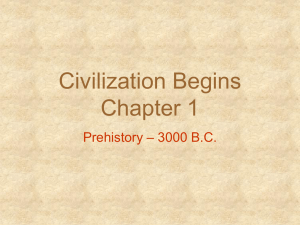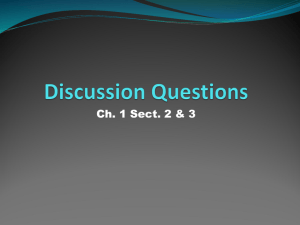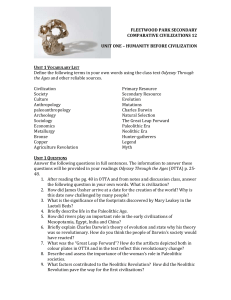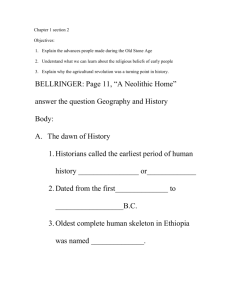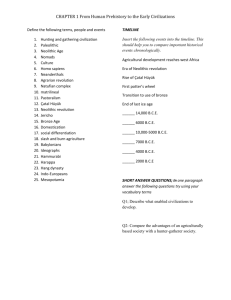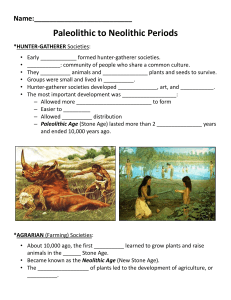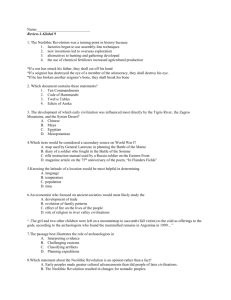Chapter 3 Early Humans and the Agricultural Revolution
advertisement
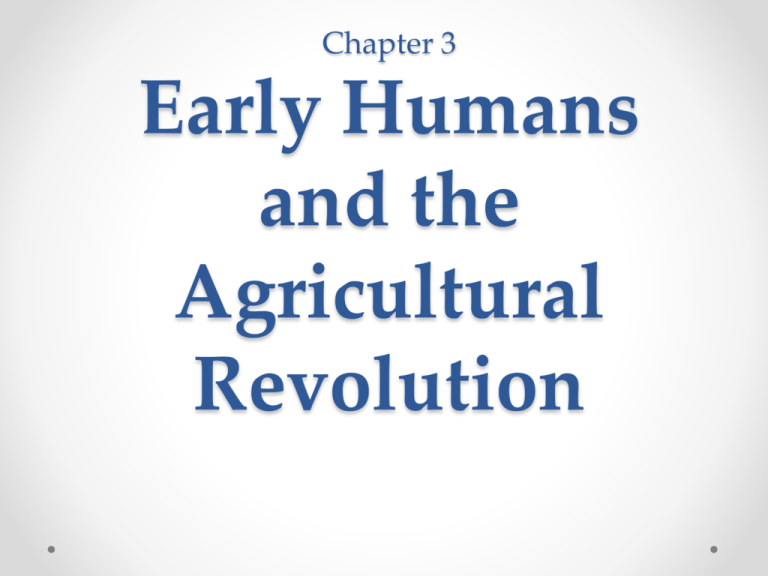
Chapter 3 Early Humans and the Agricultural Revolution Paleolithic Age • Paleolithic – “Old Stone Age”; time of hunters and gatherers • Nomads – people who move from place to place • Things made by humans long ago are called artifacts • Men hunted; women stayed close to camp • Culture – way of life for a group of people who share similar beliefs and customs • Technology – tools and methods to perform tasks • Climate affected how people lived Paleolithic Age (cont.) • Fire o Life became less difficult o People gathered around fire to share stories and cook • Language and Art o o o • Spoken language was developed People expressed themselves through art Cave paintings have been found all around the world Ice Age – long period of extreme cold o o Low sea levels exposed a “land bridge” connecting Asia and North America To survive people had to adapt (ex. Increased fat intake) Neolithic Age • • • • Neolithic – “New Stone Age”; farming revolution Gradually, farming replaced hunting and gathering Domesticate – tame animals for human use Agricultural Revolution – some historians consider it to be the most important event in human history o o o o o Farmers saved some grain to plant Constant supply of food could be produced Populations grew faster Settled communities began forming Farming spread all over the world Neolithic Age cont. • Life in the Neolithic Age o People settled near water, especially rivers o Communities grew – people were more secure o Farmers grew more food than they needed and began to trade this surplus (amount that is left over) o Less people were needed to farm so they became artisans or skilled workers; this is known as specialization or training for a particular job o Men farmed and women took care of the children o Bronze – a metal created by mixing copper and tin • Stronger than copper but expensive; most used tools and weapons made of stone Civilizations • Humans continued to develop more complex cultures, or ways of life • These complex cultures are called civilizations • Four great river valley civilizations began about 3000 BCE – Mesopotamia, Egypt, India, and China • Early civilizations developed cities and formed governments • Trade increased – allowed for the exchange of goods and ideas • Religions started to help people explain their lives • People invented ways of writing to pass on information
